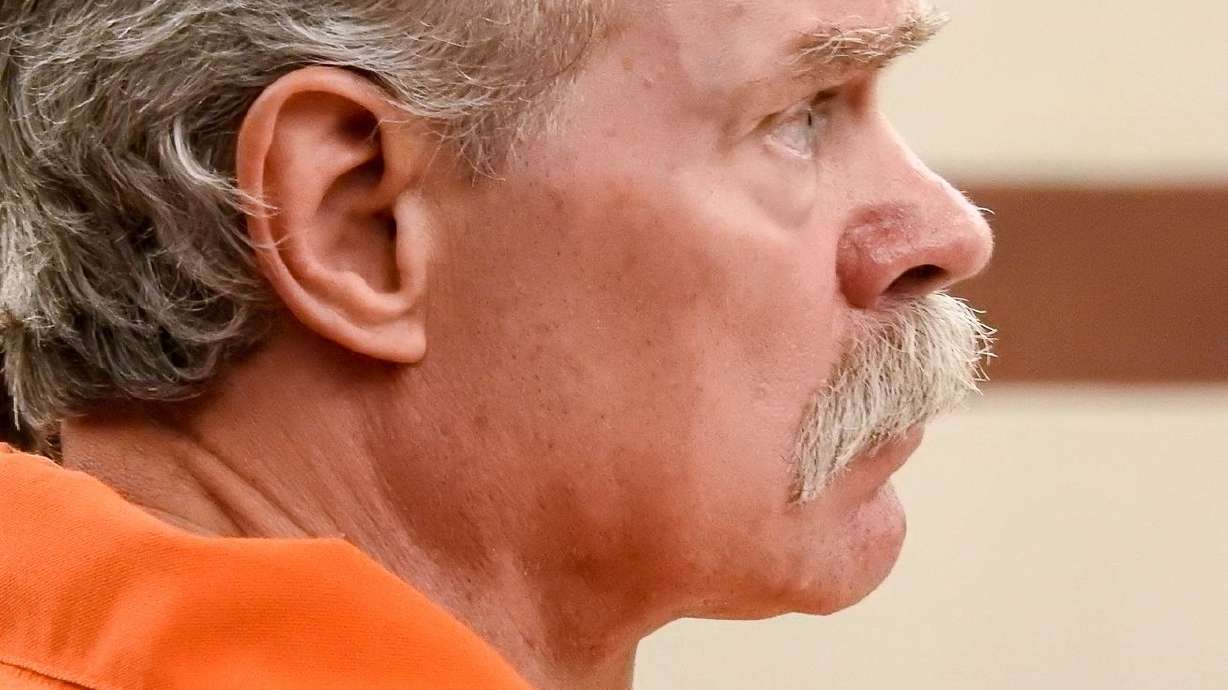Estimated read time: 2-3 minutes
This archived news story is available only for your personal, non-commercial use. Information in the story may be outdated or superseded by additional information. Reading or replaying the story in its archived form does not constitute a republication of the story.
SALT LAKE CITY — A judge in Ogden has rejected an ineffective counsel argument from a death row inmate appealing his second death sentence, a decision that now goes to the Utah Supreme Court for review.
Douglas Lovell, 63, contends one of his former lawyers failed to properly prepare witnesses and didn't object when Lovell claims The Church of Jesus Christ of Latter-day Saints meddled in his 2015 trial.
Second District Judge Michael DiReda rejected both claims.
Lovell, of Clearfield, pleaded guilty to killing Joyce Yost in 1985 to prevent her from testifying after he had been charged with raping her. He was sentenced to die for the same crimes in 1993.
After years of appeals, the Utah Supreme Court allowed Lovell to withdraw that guilty plea. A jury convicted him of murder and sentenced him to die in 2015, but Lovell now contends his legal representation at the trial wasn't up to par.
The state's high court directed DiReda to hold further hearings and determine if Lovell's attorneys did their jobs properly and if the church asked ecclesiastical leaders to not testify in his case.
DiReda rejected both claims in his 168-page decision issued last month. He wrote "it is clear" that attorney Sean Young wasn't deficient in representing Lovell.
Lovell's legal team has said the attorney was assigned to get in touch with 18 witnesses to testify, but only contacted two — a claim DiReda said was overstated.
Many witnesses either caused serious concerns for the defense strategy, weren't tied to Young's duties, or another attorney or Lovell himself made the decision not to have them testify, DiReda found.
A former Latter-day Saint bishop who worked in the prison, John "Jack" Newton, said at the 2019 hearing that church leadership suggested it would be preferable if he did not testify on behalf of Lovell at the 2015 trial.
DiReda determined the church hadn't meddled in the case. He wrote that Lovell agreed to call only three of the five ecclesiastical leaders he'd originally sought to have testify after lawyers representing them had threatened to file a motion to quash subpoenas if all five were called to take the stand.
"It was Kirton McConkie (church's law firm) doing their job representing ecclesiastical leaders for the church, former bishops," attorney Mark Field, an appellate lawyer in the Utah Attorney General's Office representing the state, told the Deseret News. "There was nothing strange about any of that."
Those who did testify said the attorneys didn't try to prevent them from doing so, or tell them what to say.
Additional hearings in the case have not yet been set.









